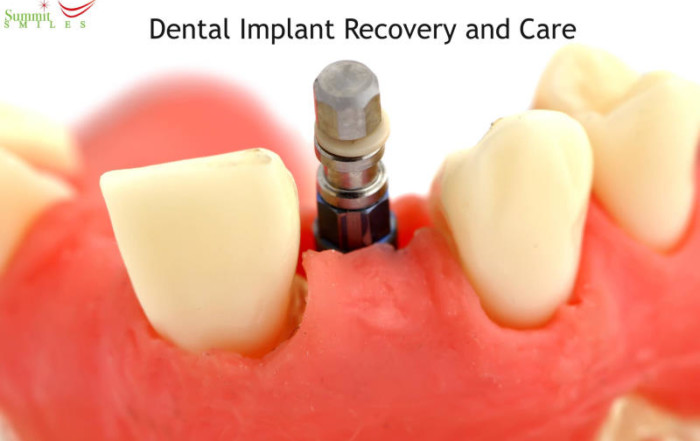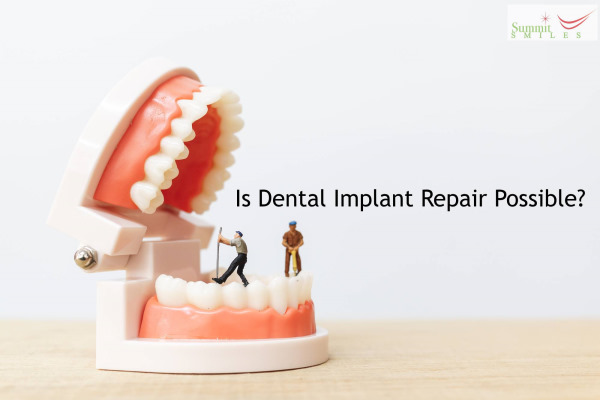 Dental implant dentistry, also known as implantology, enables you to restore and live a better life without the use of removable dentures by providing permanent dental restorations. No need to worry about losing your teeth when you speak or having a hard time eating foods because of the missing teeth. No more uncomfortable times when your dentures slip or fall out during conversation or laughter. No more frustrations of poorly fitting prosthetics. You no longer need to conceal your teeth with your palm with your new, permanent smile makeover. You’ll feel more secure as you undergo this periodontal plastic surgery, knowing that your teeth transformation can last a lifetime. You can eat whatever your heart’s desire without worrying about damaging your teeth.
Dental implant dentistry, also known as implantology, enables you to restore and live a better life without the use of removable dentures by providing permanent dental restorations. No need to worry about losing your teeth when you speak or having a hard time eating foods because of the missing teeth. No more uncomfortable times when your dentures slip or fall out during conversation or laughter. No more frustrations of poorly fitting prosthetics. You no longer need to conceal your teeth with your palm with your new, permanent smile makeover. You’ll feel more secure as you undergo this periodontal plastic surgery, knowing that your teeth transformation can last a lifetime. You can eat whatever your heart’s desire without worrying about damaging your teeth.
Contents: What is dental implant? | Why get implants? | Surgery | Aftercare | All on four | Same day | Mini | How much it costs? | Appointment | FAQ
“Dental implants are the best treatment to get to achieve a healthy, natural teeth. They allow you to live the way you want to – confidently eating, smiling, laughing, talking, kissing and enjoying all of your everyday activities without worrying about your teeth,” stated by the American Academy of Implant Dentistry (AAID).
Make an appointment with us if you’re near La Habra or learn more about What is Restorative Dentistry?
What are Dental Implants?
 A dental implant, or endosseous implant, is a screw made of titanium or zirconia in different shapes and sizes that are placed in the jaw. Once the implants are placed, it allows several weeks to heal and fuse with the jawbone. The fusing of the implant to the jawbone is called Osseointegration. It will take from three to six weeks to complete the osseointegration process. Good primary implant stability is tied with optimal implant absorption and a successful treatment result over the long run. As a result, it is important to check early durability and stability at different intervals in order to guarantee successful osseointegration.
A dental implant, or endosseous implant, is a screw made of titanium or zirconia in different shapes and sizes that are placed in the jaw. Once the implants are placed, it allows several weeks to heal and fuse with the jawbone. The fusing of the implant to the jawbone is called Osseointegration. It will take from three to six weeks to complete the osseointegration process. Good primary implant stability is tied with optimal implant absorption and a successful treatment result over the long run. As a result, it is important to check early durability and stability at different intervals in order to guarantee successful osseointegration.
This titanium screw is attached to the jawbone using a variety of diagnostic, surgical procedures, and dental implant procedures that cause the individual no pain or discomfort.
Tooth implants are available in different types, the most frequent being endosteal implants. They are used to fuse right into the jawbone. Another kind is subperiosteal implants. Unlike endosteal implants, subperiosteal is drilled below the gums and a metallic framework is installed on top of it.
Upper jaw restorations are the easiest method and it won’t take a lot of time to complete. Teeth implants can support even a full mouth restoration using permanent complete dentures or overdenture. Among the possible treatments are prosthetic root restorations, which have the best probability of success and are the safest form of dentistry. The results are similar to having your original set of teeth back. With proper oral care, these could function and last a lifetime. Nevertheless, if the patient retains any natural teeth, this method may necessitate dental extraction.
The American Dental Association (ADA) advises that “careful Oral hygiene is essential for the success of the Dental implant.” We are near La Habra, CA if you need help in making informed decisions about your oral health.
Dental implant procedure
Step1: Dental implant surgery needs one or multiple titanium metal posts and this depends on the number of teeth to be replaced. The posts are inserted into the jawbone using pressure-controlled drills. Dentists near you may occasionally recommend Platform switching, which are small diameter implants, to protect alveolar bone levels surrounding the posts.
Step 2: Some may need pre-treatment procedures before any artificial teeth can be placed using oral surgery. If the patient lacks jawbone density, they may need bone augmentation like bone grafts to enhance the density and create a stronger brace. Grafting will affect the treatment time and you’ll have to wait for 6 to 9 months for bone growth to finish and for it to heal fully.
Patients who are unable to benefit from grafting may benefit from Mini dental implants. These are implants that have a much thinner diameter than the conventional ones. Because of its size, it can be placed in a smaller amount of bone. A sinus lift or sinus augmentation may also be necessary.
Step 3: The patient can go through the healing time that lasts for 4 to 6 months before both the gums and bones are fused around the artificial tooth replacement and artificial tooth. The process is called Osseointegration. The pain or discomfort you feel right after surgery should have significantly diminished after 10 days. However, if you still experience pain, swelling, toothache, or bleeding then you have to visit your surgeon as quickly as possible.
Throughout the healing time, the patient will have multiple consultations with the implant specialist to assess the surgery site’s condition and general success rate.
Step 4: Meanwhile in the lab, crown fabrication will be performed and ready using CAD/CAM dentistry technology which is needed to be placed on the abutment the moment the teeth are completely healed. The abutment can utilize dental cement to fasten the crown in place or have them screwed directly into the abutment. When the implant-supported restorations have been placed, the patient will have a lifetime of gorgeous smiles.
Through the improvements in 3D imaging and through the use of surgically established techniques to modify gum tissues and bone, minimally invasive dental implant operations are also feasible. The 3D simulation of your jaw removes the uncertainty out of the equation. This greatly enhances precision and reduces the amount of time necessary for surgery. Discover Teeth Implants near me
All-on-4 dental implant
The purpose of this kind of procedure is to replace missing teeth on either the upper or lower jaw or the entire mouth with fixed prosthodontics such as dental bridges atop at least 4 dental implants; hence the name. Four implants are placed into the arch and the dentures are fastened to them. The patient will wait for the osseointegration process to complete, but they aren’t without teeth. Their prosthodontist will provide them with a temporary solution. Numerous individuals who previously had detachable dentures attest to the superior quality of implant-supported dentures. Visit our office today if you’re nearby La Habra or learn the advantages of Full Mouth Dental Implants.
Same day dental implant
In comparison to conventional implants, which might take weeks to place and porcelain crown, same day implants can be done in a single consultation. This means that the patient can get an appointment now and leave with a complete set of teeth through this treatment. You do not have to go a single day without teeth with this kind of innovative restorative dentistry. Read more about Same Day Dental Implants.
Mini Implants
This is the best alternative type of restoration for patients who cannot get treated with traditional implants. These are appropriate for people who do not wish to undergo surgery or who have insufficient bone mass. Mini dental implants work like regular implants but are smaller. Schedule an Appointment if you’re in or near La Habra CA.
FAQ for Dental Implants
How long does it take to complete a dental implant procedure?
Implant placement takes around one to two hours. The healing process will take between three and six months. Contact us or come and visit us if you're near La Habra.
Are you put to sleep for a dental implant?
While this is not an outpatient procedure, it is typically conducted under local anesthesia or IV sedation to ensure that you feel no pain or discomfort.
Related Articles:
Healing Time for Dental Implant
Bone loss may result in osteopenia, a condition in which you begin to lose bone mass, resulting in weaker bones. Bone loss may also lead to a more serious illness known as osteoporosis, a [...]
What is Dental Implant Repair
Dental implant complications are uncommon due to their higher success rate when compared to other treatment options. If there is a problem with your dental implant, we will be able to repair it and [...]
Dental Implants for Seniors – over 65, 70, 80
Can older patients (over 65, 70, 80) benefit from Dental Implants? Many people begin to lose their teeth when they are at their senior ages, typically at ages of 65, 70, or 80. Losing [...]



